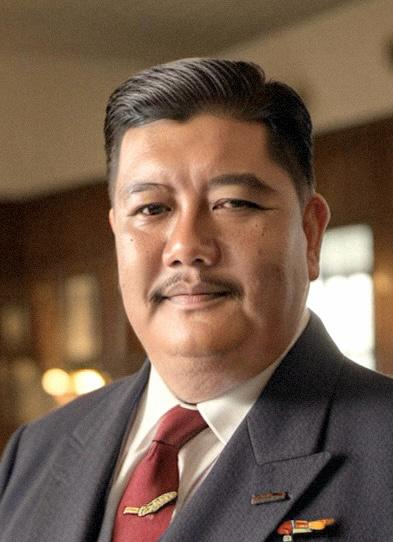By Social Activist Remy Majangkim
KOTA KINABALU: The State of Sabah, Malaysia, has long been plagued by a political culture prioritising self-interest over public welfare. Irresponsible and greedy politicians have perpetuated a cycle of poverty and ignorance, exploiting the electorate’s vulnerabilities to maintain their grip on power.
The adage “keep them poor and uneducated so that they make the wrong choice every time” has become a grim reality for many Sabahans.
As the current generation of politicians ages into their mid- and late 70s, the urgency to prepare a new cadre of competent, ethical, and visionary leaders has never been greater.
The proposed Politician and Competency Course is a radical yet necessary initiative designed to address this pressing need and jump-start the development of Sabah’s next generation of politicians.
The Need for a New Approach
Sabah’s political landscape is at a crossroads. The state’s unique position within Malaysia, coupled with its complex history and ongoing decolonisation process, demands leaders who are not only well-versed in political science and international relations but also deeply rooted in the local context.
The traditional pathways to political leadership—relying on family names, educational pedigree, or sheer opportunism—are no longer sufficient.
The issues facing Sabah necessitate new leaders with the expertise, skills, and ethical foundation to manage complex governance and international relations.
The Politician and Competency Course is designed to address these challenges head-on. It is not merely an academic exercise but a comprehensive program aimed at moulding individuals into responsible, competent, and visionary leaders.
The course is structured around two primary trajectories: a traditional academic approach and a private, competency-based learning model.
The Traditional Academic Approach
The first trajectory of the Politician and Competency Course involves conventional academic learning, with a focus on UK-recognised qualifications in political science and international relations. This approach ensures that participants gain a solid foundation in the theoretical and practical aspects of governance, diplomacy, and policy-making.
However, what sets this program apart is its emphasis on the history of Borneo Island—a topic often neglected in Malaysia’s education system. Understanding Sabah’s unique historical context is crucial for addressing the state’s current challenges and shaping its future.
By incorporating Borneo’s history into the curriculum, the course aims to foster a sense of identity and purpose among participants. It encourages them to draw lessons from the past and apply them to contemporary issues, such as the state’s role in international agreements and the ongoing decolonisation process. This historical perspective is particularly relevant for the study of international relations and constitutional law, as it provides a nuanced understanding of Sabah’s position within Malaysia and the broader global community.
The Private, Competency-Based Learning Model
The second trajectory of the course is a private, competency-based learning model. This approach covers the same topics as the traditional academic pathway but on a smaller scale and without formal accreditation. Instead, the focus is on practical understanding and application, with participants’ competency verified by a panel of experienced instructors. This model is particularly suited for individuals who may not have access to formal education but possess the potential and drive to become effective leaders.
The private class model is designed to be flexible and accessible, ensuring that a diverse range of individuals can participate. It focuses on practical learning, problem-solving, and critical thinking, providing participants with the skills necessary to tackle real-world challenges.
By prioritising competency over credentials, this approach democratises access to political education and opens the door for a new generation of leaders who might otherwise be excluded from traditional pathways.
Personal Development.
The final polish will evolve around sets of skills that are complementary beyond academic and competency-based learning; the Politician and Competency Course places a strong emphasis on personal development, capable of inspiring their communities and well-rounded leaders.
A Vision for Sabah’s Future
The Politician and Competency Course is more than just an educational program; it is a call to action for Sabah’s next generation of leaders. By equipping individuals with the knowledge, skills, and ethical grounding needed to lead, the course aims to break the cycle of poor governance and usher in a new era of responsible and visionary leadership. Sabah’s unique situation within Malaysia and the broader international community demands leaders who are not only competent but also deeply committed to the welfare of their people.
As Sabah stands on the brink of a new political dawn, the Politician and Competency Course offers a beacon of hope. It is a radical yet necessary approach to cultivating leaders who can navigate the complexities of governance, uphold the principles of justice and equity, and inspire a brighter future for all Sabahans. The time for change is now, and this initiative is a crucial step toward realising that vision.


